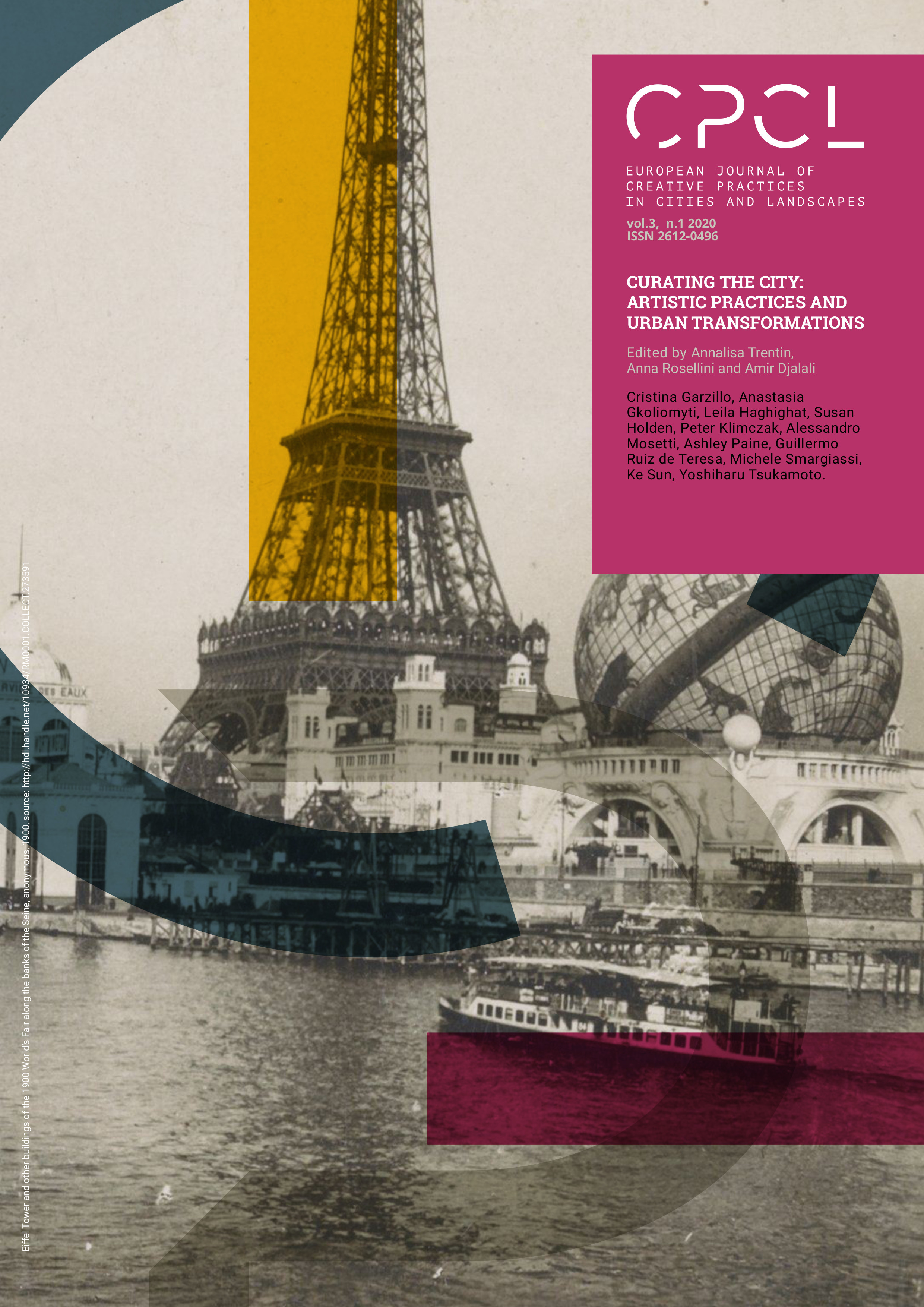On the Practical and Theoretical Possibility of Exploiting Science Fiction for Urban Planning
DOI:
https://doi.org/10.6092/issn.2612-0496/10860Keywords:
urban planning, smart cities, science fiction, media theory, set theoryAbstract
In recent years, cities and districts, such as Songdo City in South Korea, King Abdullah Economic City in Saudi Arabia, or Singapore, have been planned, built and rebuilt in adherence to the guiding principle of a “Smart City”. Some science fiction scenarios are in parts reminiscent of control systems already implemented in these places. Science fiction therefore offers approaches to urban development policy, for example to visualise the possible effects of uncontrolled technologization of the living environment. But is such a use of science fiction even possible? After all, one of the most essential distinctions in literary and media studies is the differentiation between factual and fictional discourse. For most scholars, the decisive distinguishing feature is on the level of form. Using set theory, I intend to differentiate between them on the level of content. This makes it possible to show the hybrid status of science fiction between fictionality and factuality. It is precisely this seemingly contradictory in-between that makes this genre so attractive and highlights its potential for reality. For example, for urban planning.
References
Aristotle. Poetics. Oxford: Oxford University Press, 2013. https://doi.org/10.1093/oseo/instance.00258601
Hight, Craig. "Mockumentary: A Call to Play." In Rethinking Documentary: New Perspectives And Practices, edited by Austin Thomas and de Jong Wilma. Berkshire: Open University Press, 2008, 204-216.
Karvonen, Andrew, Federico Cugurullo, and Federico Caprotti, eds. Inside Smart Cities: Place, Politics and Urban Innovation. New York: Routledge, 2018. https://doi.org/10.4324/9781351166201
Klimczak, Peter. "Fremde Welten - Eigene Welten. Zur kategorisierenden Rolle von Abweichungen für Fiktionalität." Medienkomparatistik 2 (2020): 117-137.
Klimczak, Peter, Dennis Gräf, Stephanie Großmann, Hans Krah and Marietheres Wagner. Filmsemiotik. Eine Einführung in die Analyse audiovisueller Formate. Marburg: Schüren, 2017.
Martínez, Matías, and Michael Scheffel. Einführung in Die Erzähltheorie. München: Beck, 2020. https://doi.org/10.17104/9783406742910
Pätsch, Carolin, and Moritz Maikämper. "Exploration and Imagination of City Futures in Science-Fiction." In Proceedings of the 20th International Conference on Urban Planning, Regional Development and Information Society, edited by Manfred Schrenk, Clemens Beyer, Pietro Elisei, Vasily Popovich, and Peter Zeile, 2015.
Pätsch, Carolin, Moritz Maikämper, Steffen Krämer, Belinda Rukschcio, and Bodo Rott. Von Science-Fiction-Städten Lernen : Szenarien Für Die Stadtplanung. Bonn: BBSR, 2015.
Rastier, François. “Systématique des isotopies.” In Essais de sémiotique poétique, edited by Algirdas Julius Greimas. Paris: Larousse, 1972, 80–105.
Steinborn, Anke, and Denis Newiak, eds. Urbane Zukünfte im Science-Fiction-Film: Was wir vom Kino für die Stadt von morgen lernen können. Berlin: Springer, 2020. https://doi.org/10.1007/978-3-662-61037-4
Titzmann, Michael. "Semiotische Aspekte der Literaturwissenschaft." In Semiotik. Ein Handbuch zu den zeichentheoretischen Grundlagen von Natur und Kultur 3, edited by Roland Posner, Klaus Robering, and Thomas A. Sebeok. Berlin: De Gruyter, 2003, 3028-3103.
Published
How to Cite
Issue
Section
License
Copyright (c) 2020 Peter Klimczak

This work is licensed under a Creative Commons Attribution 4.0 International License.




